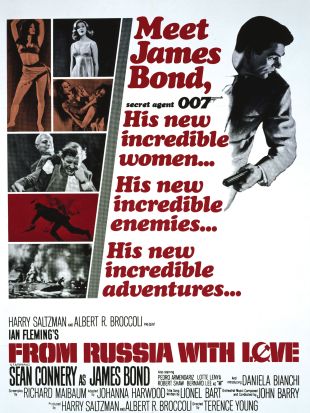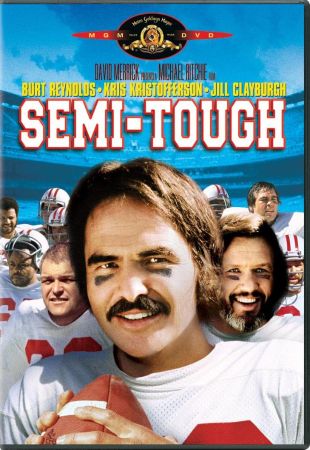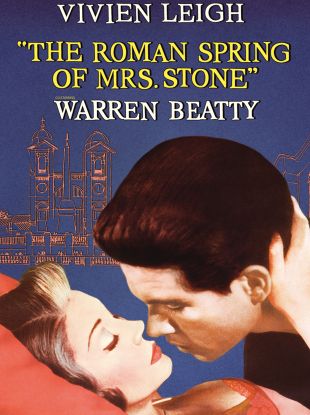Best known as a stage performer and recording artist, and the wife of composer Kurt Weill -- whose songs made up the repertory for which she was most widely recognized as an interpreter -- Lotte Lenya also made a handful of notable film appearances across her six-decade career. Born Karoline Blamauer in Hitzing, Austria, to a working-class Catholic family, her childhood associations with music were somewhat harrowing, centered on her physically abusive father who, in his drunken rages, would pull her out of bed to have her sing to him and then berate her; she was forced to go to work at an early age and did her best, mostly out of love for her mother Johanna. It was her mother and her aunt, Sophie, who conspired to get the girl out of the household and away to Zurich, where she went to work as a maid to a couple who, by chance, were photographers.
It was a chance look at a photo of ballet dancer Steffi Herzeg that stimulated her interest in dance, and she became a pupil of Herzeg's. She was good enough at age 13 to get engaged as an apprentice ballerina in Zurich, which enabled her -- though officially an Austrian national -- to remain in Switzerland at the outbreak of World War I. The next year allowed her to experience all of the exposure to art and music that she had missed growing up under her father's abusive regimen, and she began to get known as a dancer, and a protégée of Richard Revy, the chief director of the Schauspielhaus. By 1916, after a period as an apprentice, she became a full-fledged member of the ballet company at the Stadttheater in Zurich; and by 1918 she was giving solo performances, and also taking on acting roles, in plays by Ludwig Anzengruber and George Bernard Shaw.
Her ballet work extended to appearances in operetta productions, such as Franz Lehar's The Merry Widow, and she'd even made an appearance as an extra in one opera production. Among those she crossed paths with professionally was Elisabeth Bergner, the future film star and then an apprentice actress, with whom she worked in supporting roles in Franz Wedekind's Kammersanger. Her work had forced her to choose a stage name -- eventually she came around to "Lotte," an informal shortening of her middle name, and "Lenja," a variation on "Jalena" from Uncle Vanya, a play that had special personal resonance to her and to Revy; "Lenja" eventually became "Lenya" after she moved to the United States. By 1921, she'd made the leap from Zurich to Berlin, which was the center of a multitude of new, modernistic, forward-looking artistic visionaries. Alas, the only audition she could get at first -- despite Revy's best efforts -- was in a Russian touring ballet company doing a children's pantomime, with music by a composer named Kurt Weill. The two met during the audition, but she never did return for the rehearsal, and -- on Revy's advice, after he failed to get the job as director -- walked away from the production without a word. Instead, she made her Berlin debut in an acting role, as Maria in Shakespeare's Twelfth Night.
As her career moved forward, and toward acting much more than dance, Lenya crossed paths again with Weill in 1924, and this time the sparks flew and the little, bespectacled composer fell in love with the actress. By the spring of 1925, they were living together and in the first month of the following year they were married. She was part of his life when he saw his first major success, with the opera Der Protagonist in 1926, but by 1928, Weill, his playwright collaborator Bertolt Brecht, and Lenya would constitute a creative/performing triumvirate that would be immortalized for decades to come, with Die Dreigroschenoper (The Threepenny Opera), a modernization and "musicalization" of John Gay's The Beggar's Opera. Lenya was immortalized in the role of Jenny, which became her breakthrough -- from the premiere of the work, on the final day in August of 1928, until the rise of the Nazi Party in Germany in 1933, she was the star of the moment. This was also the work that afforded Lenya her first screen role -- G.W. Pabst's film version of The Threepenny Opera outraged Brecht, because of changes to the libretto, but it proved an extraordinary vehicle for Lenya, who appeared in both the French and German versions of the movie (a planned English version was never shot). Unfortunately, the worsening political situation in Germany was to cut short any benefit that Lenya, Weill, Brecht, or anyone else might have seen from the movie -- their Seven Deadly Sins (1933) saw its premiere in Paris, not Berlin, as she and Weill became cultural and political refugees from the Nazi-run government. Not all was happy or easy during this period between them personally, and they were divorced that same year. But barely two years later, after both emigrated to the United States, they reconciled, and in 1937 were remarried, this time for keeps -- they were together until Weill's death 15 years later, eventually settling in New City, New York. Lenya did contribute some recordings to the American war effort, and to the Voice of America, but she was primarily a creature of the stage for the next decade, and not even that for a time, following an unhappy experience in Weill's The Firebrand of Florence (1945), which convinced her to give up the theater temporarily. She re-emerged in the years following Weill's death, and in 1956 won a Tony Award for her performance as Jenny in Marc Blitzstein's English-language adaptation of The Threepenny Opera. This, in turn, led to a revived recording career and to cabaret work; Lenya, in turn, became the keeper of her late husband's work, and eventually founded a music society to help foster performances and recordings. In 1961, she returned to feature film work for the first time in 30 years with a role in the movie The Roman Spring of Mrs. Stone, starring Vivien Leigh and Warren Beatty and based on a work by Tennessee Williams. Then, in 1963, came Lenya's breakthrough to mass exposure, when she accepted the co-starring role of Rosa Klebb, the murderous lesbian spy master in Terence Young's From Russia With Love. It was a role that people would refer to for the rest of her life, and one of those career oddities that would amuse her from time to time. Lenya's three subsequent movie appearances would range from supporting roles in Ten Blocks on the Camino Real (1966) and North Dallas Forty (1976) to a starring role in Sidney Lumet's The Appointment (1969). In the midst of this sudden revival of her movie career, Lenya returned to the Broadway stage in a very prominent manner, originating the role of Fraulein Schneider in the musical Cabaret. Lenya cut a striking figure during her final years, both onscreen and on talk shows, which she did occasionally. She was arguably, along with Marlene Dietrich, the most enduringly popular performing star to come out of pre-war/pre-Nazi Germany. She died of cancer in 1981 in New York City.


